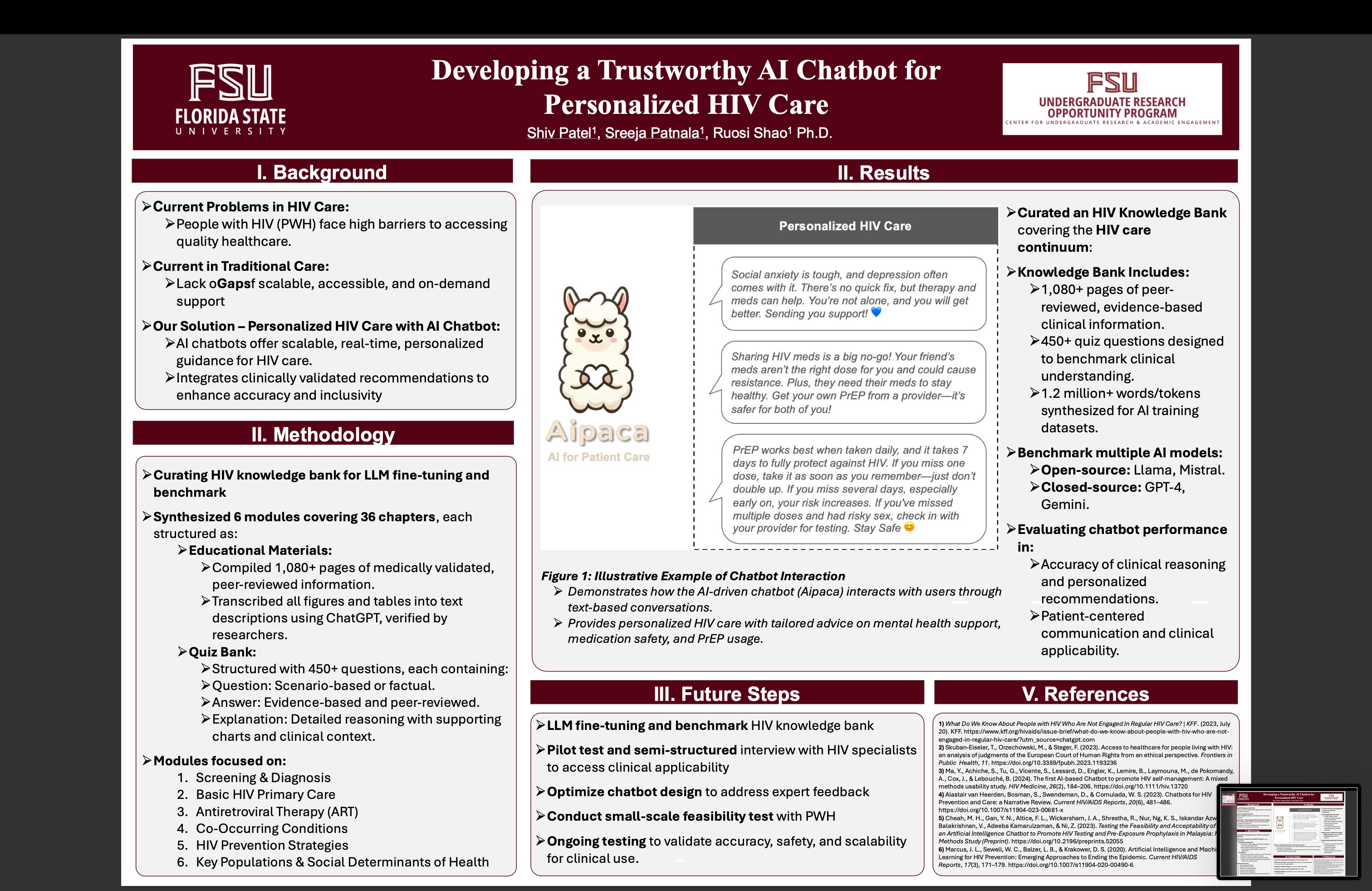Research Symposium
25th annual Undergraduate Research Symposium, April 1, 2025
Sreeja Patnala Poster Session 4: 3:00 pm - 4:00 pm/ Poster #273

BIO
Hello! My name is Sreeja Patnala and I am currently on the pre-med track, planning to graduate as the class of 2027. My hometown is South Florida and I have a twin brother who attends FSU along my side. I love learning and designing new discoveries to shape our planet into a better home for everyone. I am very intrigued and passionate about research on a variety of subjects related to cognition, biomedicine, and technology.
Developing a Trustworthy AI Chatbot for Personalized HIV Care
Authors: Sreeja Patnala, Dr. Ruosi ShaoStudent Major: Biological Science
Mentor: Dr. Ruosi Shao
Mentor's Department: School of Communication Mentor's College: College of Communication and Information Co-Presenters: Shiv Patel
Abstract
People with HIV (PWH) face persistent barriers to optimal care, including challenges with antiretroviral therapy (ART) adherence, retention in care, and engagement with preventive health services. These barriers disproportionately affect minoritized populations and contribute to disparities in viral suppression and overall health outcomes. Digital health interventions, such as conversational agents (CAs) or chatbots, offer a scalable and accessible means to support PWH across the HIV care continuum by providing personalized, real-time health guidance
To address these challenges, we developed a personalized, AI-powered chatbot—Aipaca—designed to deliver real-time, evidence-based HIV care guidance. Leveraging Large Language Models (LLMs), our chatbot integrates clinically validated recommendations to enhance the accessibility, accuracy, and inclusivity of HIV support.
To fine-tune the AI, we curated a comprehensive HIV Knowledge Bank covering the full continuum of HIV care. This included over 1,080 pages of peer-reviewed material, 450 quiz questions, and 1.2 million tokens of synthesized content. We benchmarked both open-source (Llama, Mistral) and closed-source (GPT-4, Gemini) LLMs on clinical accuracy, reasoning, and patient-centered communication. Preliminary results demonstrate the feasibility of using AI chatbots to provide personalized care, including support for mental health, medication safety, and HIV prevention strategies such as PrEP.
Ongoing efforts include expert interviews to refine clinical applicability, pilot testing with PWH, and performance validation to ensure the chatbot’s safety, accuracy, and scalability in real-world healthcare settings. Our findings highlight the potential of AI chatbots to transform HIV care by offering personalized, accessible, and trustworthy support for PWH.
Keywords: Artificial Intelligence (AI), Virtual Reality (VR), Human Immunodeficiency Virus (HIV), Healthcare, and mobile health (mHealth)

